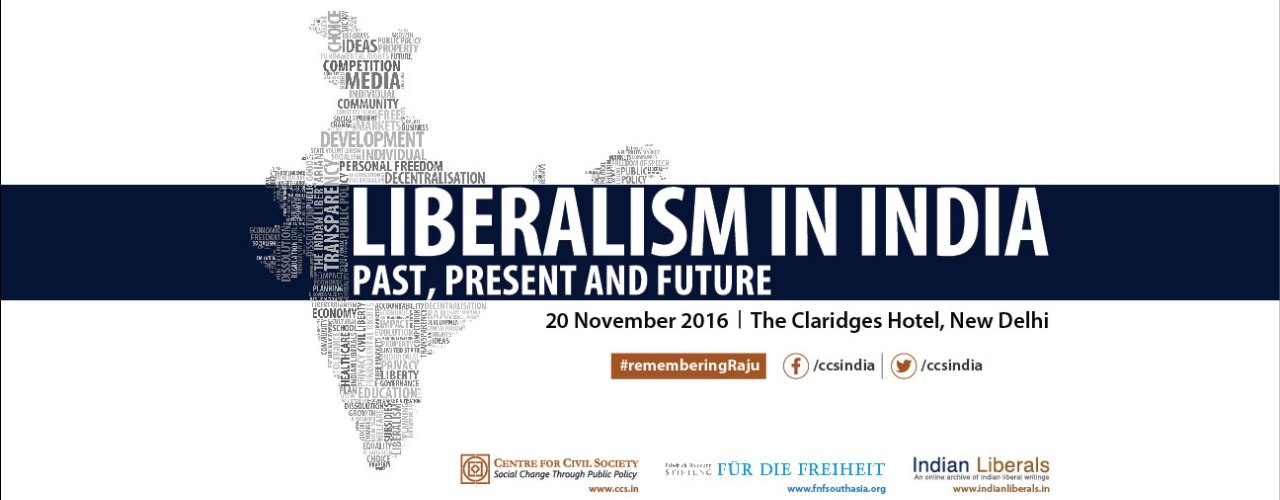S V Raju has been a ‘convening force’ for Indian liberals. After the closure of the Swatantra Party, he kept the Maharashtra chapter going as a distinct entity so that those who have interest in liberal politics could continue to come together. The Indian Liberal Group was the most active forum, not just in Mumbai but also across much of India, that kept the flame of liberalism alive. The ILG offered camaraderie for the older liberals and a guiding path to the aspiring ones.
Even in his passing, Mr. Raju helped convene liberals to discuss the past, present and the future of liberalism in India. This turned out to be the most diverse group of liberals ever to assemble in recent times—from the old and the young, liberals, libertarians and conservatives, organisations (think tanks and do tanks) and individuals (politicians, public intellectuals, authors, columnists, activists). The result of that convening is this book —the S.V. Raju Festschrift.
Order a copy of the book by writing to publication@ccs.in(link sends e-mail)!Author / Edited by: Essays in Honour of S V Raju; Edited by Parth J Shah
Download: ![]() Excerpt
Excerpt
Introduction
Parth J Shah
S.V. Raju has been a ‘convening force’ for Indian liberals. After the
closure of the Swatantra Party, he kept the Maharashtra chapter
going as a distinct entity so that those who have interest in liberal
politics could continue to come together. The Indian Liberal Group was
the most active forum, not just in Mumbai but also across much of India,
that kept the flame of liberalism alive. The ILG offered camaraderie for
the older liberals and a guiding path to the aspiring ones.
Even in his passing, Mr. Raju helped convene liberals to discuss the past,
present and the future of liberalism in India. This turned out to be the
most diverse group of liberals ever to assemble in recent times—from the
old and the young, liberals, libertarians and conservatives, organisations
(think tanks and do tanks) and individuals (politicians, public intellectuals,
authors, columnists, activists). The result of that convening is the book you
have in your hands—the S.V. Raju Festschrift.
The chapter authors deal with some of the classic dilemmas of liberalism.
For liberals, the fundamental political value is liberty—the value that
makes any political association liberal. The liberals also cherish equality,
fraternity, security, social justice, and often pursuit of these other values
conflicts with liberty. Each political association at any specific time and
place has to find norms, rules, laws or a constitution to resolve this tension.
Many of the authors attempt to address this conflict of liberty and other
values for the India of 2016.
One set of chapters in the book addresses the tension between liberty
and other values. The other set of chapters articulate implications of
Introduction
Parth J Shah
Liberalism in India PAST, PRESENT AND FUTURE
2
liberty—decentralisation of governance, religious and cultural freedom,
a liberal constitution. So all the chapters in the book could be divided
into two buckets—‘liberty conflict’ and ‘liberty implications.’
Before I classify the chapters, let me present the profoundly simple and
insightful resolution to the ‘liberty conflict’ issues. It is a decalogue or ‘Ten
Cannots’ from the American pastor William John Boetcker (1873 -1962),
often wrongly attributed to Abraham Lincoln:
• You cannot bring about prosperity by discouraging thrift.
• You cannot strengthen the weak by weakening the strong.
• You cannot help little men by tearing down big men.
• You cannot lift the wage earner by pulling down the wage payer.
• You cannot help the poor man by bringing down the rich.
• You cannot establish sound security on borrowed money.
• You cannot further the brotherhood of man by inciting class hatred.
• You cannot keep out of trouble by spending more than you earn.
• You cannot build character and courage by destroying men’s initiative
and independence.
• And you cannot help men permanently by doing for them what they
can and should do for themselves.
These ‘Ten Cannots’ can serve as ten principles for a good society, for a
liberal constitution or for sound public policy. If we take them to heart,
many of the current liberal dilemmas could be effectively addressed.
In the Festschrift, though a couple of chapters have overlapping themes,
they can be classified as focusing primarily on one of the ‘liberal conflicts.’
I am putting the name of the author in the bracket to indicate which
chapter primarily deals with which conflict of values.
• Liberty vs equality (Gurcharan Das)
• Liberty vs security (Nitin Pai)
• Liberty vs welfare state (Parth J Shah)
• Liberty vs democracy ( Jaithirth Rao and Barun Mitra)
• Liberty vs reservations (Surjit Bhalla)
• Liberty vs Indian history of liberty (Hindol Sengupta and Laveesh
Bhandari)
Three chapters prescribe how to enhance liberty or describe the implications
of liberty:
• Liberal constitution (Atanu Dey)
• Decentralisation of governance ( Jayaprakash Narayan)
• Religious and cultural freedom (R. Jagannathan)
You would surely agree that these—‘liberty conflicts’ and ‘liberty
implications’—are very relevant to India of 2016. As Seetha so lovingly
summarises the life and work of Mr. Raju, this convening and the frank
debate on the issues of the day is just what Mr. Raju would have done.
Let us all commit to continue this process in his memory.







